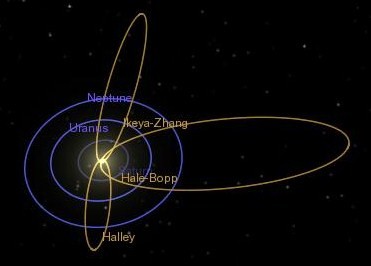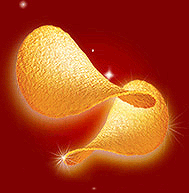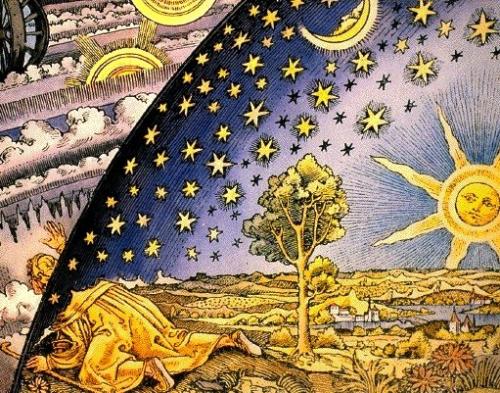-
Posts
168 -
Joined
-
Last visited
-
Days Won
1
Content Type
Profiles
Forums
Events
Everything posted by BusaDave9
-
The crucifix cross is the christian cross. But I am confused when he says "cross represents the images of A distant star" That's different from a constellation. My avatar and my member name refer to Hayabusa. It's the Japanese name for the Peregrine Falcon, the fastest bird in the world. Or, in my case, it is also the motorcycle I ride.
-
I think the cross is used as a christian symbol to indicate the suffering Jesus was put through.
-
Wow, there's some heavy trolling just to slam someone's religion.
-
The christian cross represents the cross that Jesus died on. There are a couple constellations that represent crosses. Cygnus is the norhern cross. And there is a constellation just called the Southern Cross
-

The big bang still happening?
BusaDave9 replied to too-open-minded's topic in Astronomy and Cosmology
The universe is mostly empty space. Light will travel billions of lightyears without hitting anything. The same can be said of the background radiation. It will travel for ever until it hits something and is absorbed. -

The big bang still happening?
BusaDave9 replied to too-open-minded's topic in Astronomy and Cosmology
can we take another route? "Yes, I'm right" "No I'm right" "I'm righter" How about we have some specific information that we can debate. I am interested to hear this one out but not at this pace. -

The big bang still happening?
BusaDave9 replied to too-open-minded's topic in Astronomy and Cosmology
An illusion? Ah yes, this reminds me of the Steady State Theory. Let me back up. We know that everything in the universe is moving apart. So that must mean the universe is expanding. Then there were some scientist that said "maybe as the universe is expanding more matter gets created". New stars and galleries can then form. So then after many billions of years the universe still looks the same. There are no voids bigger than billions of years ago. In other words the expanding universe would just be an illusion. Well not exactly but the point is that even after hundreds of billions of years the universe looks just that same. That is the Steady State Theory. Then again the Steady State Theory was discounted many decades ago so never mind. -
For any satellite to have a perfectly circular orbit it must stay the same distance from the sun or whatever it's orbiting. This is not indicative of any trait of the spacetime continuum as much as the fact that the gravitational pull is stronger near the heavenly body. As a satellite nears the sun it speeds up and is then carried further out into space. Read up on Kepler's Laws of Planetary Motion. http://csep10.phys.utk.edu/astr161/lect/history/kepler.html
-

Repair the hole in the ozone layer
BusaDave9 replied to petrushka.googol's topic in Ecology and the Environment
nope -
A comet has an extremely eccentric orbit. It comes in close to the sun, accelerating very fast. Then they are flung far out into space. They may sit our beyond the planets for hundreds or thousands of years. The more famous comets come back with predictable shorter orbits (Halley's Comet orbits every 75 years) Since a comet's orbit is so eccentric, almost like a random object falling into our solar system to be flung back out into space, many comets may have similar orbits but it is very unlikely that 2 would have the same orbit.
-

Space has no time. No beginning No end.
BusaDave9 replied to mattrsmith88's topic in Astronomy and Cosmology
I also feel I need to make one more clarification. In order to help you understand the dimensions of the universe we have stated that the universe may be curved like the surface of a sphere. If this is the case then cosmologist would say the universe is finite and unbounded. The universe is finite because a line can only be so long (before it retraces itself). A plane (actually a sphere because of the curvature of space-time) can only have so much area. The universe is unbounded because there is no boundaries. You will never get to the end of the universe. If you keep traveling in a strait line you would end up where you started. For this reason some have erroneously said this type of universe would be bounded. That's not true. An unbounded universe is one that has no boundaries. If a universe was bounded then you could reach the end of the universe and if you were to go farther then you would leave the universe. No cosmologist believes the universe is bounded. Everyone is sure there is no end to the universe. Einstein showed, in his General Relativity that the spacetime continuum can be curved because of gravity. It is extremely unlikely that the curvature of the spacetime continuum is perfectly flat. It could have a positive curvature, which would be like the sphere we have been talking about. I hate to bring it up (at the risk of confusing your understanding) but the other possibility is that the curvature of the space-time continuum would have a negative curvature. This would be more like the shape of a Pringle's Potato Chip. I tried to find a better image of this spacetime continuum but a Pringles chip was the best I could come up with. If the dimensions of the universe were shaped like this then the universe would have negative curvature. The area would increase as you moved farther from the starting point. If you continued the Pringle's chip forever then the area would be infinite. Hence Infinite but Unbounded. -

Space has no time. No beginning No end.
BusaDave9 replied to mattrsmith88's topic in Astronomy and Cosmology
Okay, so you understand the sphere represents 2 dimensions of our universe. We are talking about the universe. The universe is the space-time continuum. You are asking where is this universe? Where in space is space? You must realize these questions are meaningless. -

Space has no time. No beginning No end.
BusaDave9 replied to mattrsmith88's topic in Astronomy and Cosmology
Einstein says space time is warped. Consider 2 dimensions of the universe like the surface of a balloon and the balloon is inflating. As the balloon gets bigger and bigger it is harder and harder for a bug to walk all the way around it. -

Space has no time. No beginning No end.
BusaDave9 replied to mattrsmith88's topic in Astronomy and Cosmology
Let me extrapolate on what Strange said. The spacetime continuum can be curved. Einstein said gravity was a warpature of the spacetime continuum. So what about the whole universe? The universe could be warped like the surface of a globe. Light traveling in a strait line could come back to the beginning. This would mean the universe would be finite but unbounded (no end). In the early universe it would be like the surface of a small moon (I'm only talking 2 dimensions for simplicity) you could travel in a strait line and get back to where you started. Then the universe has been expanding and much harder to get back to your starting point by traveling in a strait line. NO NO NO the universe is not at all like a nebula in space, Filling up a certain amount of space. The universe IS SPACE. The universe IS TIME. The universe IS the SPACETIME CONTINUUM. But it does have matter within it. Stop thinking about the universe as if it was the stars and matter within the universe. When we say the universe is like a sphere we are talking about 2 dimensions of the spacetime continuum. For the sake of understanding forget about the stars and matter within the universe. -

Space has no time. No beginning No end.
BusaDave9 replied to mattrsmith88's topic in Astronomy and Cosmology
No No No I am not talking about the physical aspect of space. No this is not like matter is expanding into preexisting space. Please reread my post where I talk about the early universe where matter is pressed together. This matter would exist EVERYWHERE in the universe. ALL of space would consist of this matter packed together. You could not travel to the end of this matter and see empty space beyond. This is why I keep talking about space itself expanding. NOT matter expanding into space. NO, SPACE HAS NO BOUNDARIES! I realize this concept is hard to understand but scientist have given up on this idea of the universe having boundaries 200 years ago. -

Space has no time. No beginning No end.
BusaDave9 replied to mattrsmith88's topic in Astronomy and Cosmology
The Milky Way is our Galaxy. It is not a universe. Telescopes can see other galaxies but no telescope will ever be able to see any other universe. There is some misunderstanding about the universe and what it is. The universe encompasses EVERYTHING that exists ANYWHERE in space. It also includes everything that has ever existed and everything that will ever exist. The word universe means there is only one and it encompasses EVERYTHING. Okay so now my definition of universe is pretty much all encompassing. But scientists say there may be other universes. How could that be? The definition of universe includes everything that exists within the dimensions of our universe, space and time. It is ALL of space. There is definitely no end to the universe. It may be finite but it is also unbounded (no end). Or it may be infinite but still must be unbounded. That's the topic for another thread. So if there is another universe it just doesn't exist in our spacetime continuum. It may have other dimensions just not space and time. It may have a dimension similar to time that everything progresses through as things "age". It may have 3 dimensions or it may have 30 dimensions. So if the universe is unbounded then you should be able to take a space at the speed of light (ok, ok it's a hypothetical spaceship) and never get to the end of the universe. If that is true then it was always true EVEN in the early universe when all the matter was pressed up together. ( I want to talk about the early universe not the singularity because my post would have to include quantum mechanics and be much more confusing) So in this early universe that was so "small" that all the matter was pressed together then it still continued on for ever. ALL the universe (EVERYTHING, and if you don't understand everything please reread my post) was composed of matter pressed together. As the universe expanded matter was not pressed together any longer. Atoms could form. Then matter could coalesce to form galaxies, stars, planets, etc, etc etc. -

The big bang still happening?
BusaDave9 replied to too-open-minded's topic in Astronomy and Cosmology
The big bang was the initial explosion from a singularity. We are still experiencing an expanding universe. To understand think of the expanding universe. Back in time all the matter was tight together. If you think back to when subatomic particles were pressed up against each other that still wasn't the beginning of our universe. To think back ever further we need to understand quantum theory but we are still not back to the singularity. To understand the origin of the universe and the singularity it is easiest to just think it all started from pure energy. Where'd this energy come from? This is before our universe so it's all speculation but one theory is the Oscillating Universe. A universe is created and expands. After many billions of years the universe stops expanding because of the gravitational pull of the mass in the universe. The universe contracts and collapse into one massive black hole. That energy is then used for the next universe. -

Space has no time. No beginning No end.
BusaDave9 replied to mattrsmith88's topic in Astronomy and Cosmology
This is not true. Space itself is expanding as the universe is expanding. At first this is hard for the layperson to understand. The evidence that the astronomers have collected show that the universe AND everything in it is expanding. It is not like matter in the universe is expanding into a void of the universe. It's not like all matter is traveling away from the place in space where the big bang started. It's not like there is a big void beyond where this matter has not yet expanded into. When astronomers look far out into space it looks like everything is moving away from us. But we don't have a special place in the universe no matter where you are in the universe it always looks like everything is expanding away from you. -

We are literally the ashes of long dead stars.
BusaDave9 replied to mattrsmith88's topic in Religion
mattrsmith88 please explain yourself. Are these your beliefs or how you believe religions started? As for the title of this thread, yes it is most likely that we are truly made out of the "ashes" of long dead stars. Only Hydrogen and Helium, the most basic atoms, could form in the universe on their own. A star such as our own sun can cause hydrogen fusion but the heavier elements need much higher pressures. Scientist believe the iron, gold, lead and other heavy elements that are found on Earth could only be formed in the most massive stars. The quasars that were also common in the very early universe could cause the fusion to create these elements. -

We are literally the ashes of long dead stars.
BusaDave9 replied to mattrsmith88's topic in Religion
I find this kind of talk fascinating. I believe that god only works through the laws of nature so it always interests me when people talk about religion and science together. The problem with your "theory" is the scientific parts have no basis in reality. "God exists in the form of a Sun" or "a number of supermassive stars that existed billions if not trillions of years ago."? ? ? The universe isn't trillions of years old. Please explain. So this Sun or super-massive stars are the god that created the universe? Or does this star or stars control our lives? I really don't understand your theory or what you are trying to say. The sun never does go so far into the southern hemisphere to be anywhere near the southern cross. -
as matter passes the event horizon of a black hole it exceeds the speed of light. Its dimensions of space and time are destroyed. If it obtains new dimensions of space and time John Wheeler first theorized that this black hole would be a worm hole to another place in our universe. If the matter obtained new, different dimensions the worm hole would go to another universe. If such a universe had anti-gravity stars and planets would never exist. It would be an ever expanding universe with sparse atoms that would never coalesce into planets or other bodies.
-
What is free will? It's thinking about the options and making a decision based on what you want. You are free to do whatever you want. Should I walk along the ridge with a view or cut through the gulley? But isn't this just the most basic animal trait of seeking pleasure and avoiding pain? If you do something that you expect to enjoy over something that will make your uncomfortable is that free will? Okay, so seeking pleasure and avoiding something that will hurt us is not really free will. Any animal will avoid pain although we and the higher animals may be better at predicting when something may hurt us. So next lets consider a scenario not as obvious as seeking pleasure and avoiding pain. We are handed 2 identical presents and are told one has valuables in it and the other has garbage. We can only keep one package. Which one do we pick? Now there is no evidence one package is better than the other. Our decision is as random as the flip of a coin. Is this free will? No, not if it's random. What is free will? That's the real question that needs to be answered in this thread before anyone can answer if we really have it. I think defining free will is MUCH harder than deciding if we have it.
-
True, near a black hole spacetime is warped. This is true of any gravitational force but in the case of a black hole the space-time continuum is infinitely warped at the event horizon. For a spaceship to stay at the event horizon it would have to travel at the speed of light. Anything beyond the event horizon would have to travel faster than the speed of light. For that reason it can be said that anything beyond the event horizon is not within our universe. Some say a black hole may be a worm hole to another universe or another place and time in our universe. But all that is speculation. Once anything passes the event horizon it can't even send radio waves, light or any signal back past the event horizon. How much "space" is there in a black hole? It's a meaningless question because space and time don't have meaning beyond the event horizon. The dimensions of our universe are infinitely warped. There is no limit to how much matter can fit "inside" a black hole. If a massive star falls into a black hole nothing of the star exists anymore except the gravity. The black hole will have a stronger gravitational force. For that reason the event horizon will be slightly bigger.





